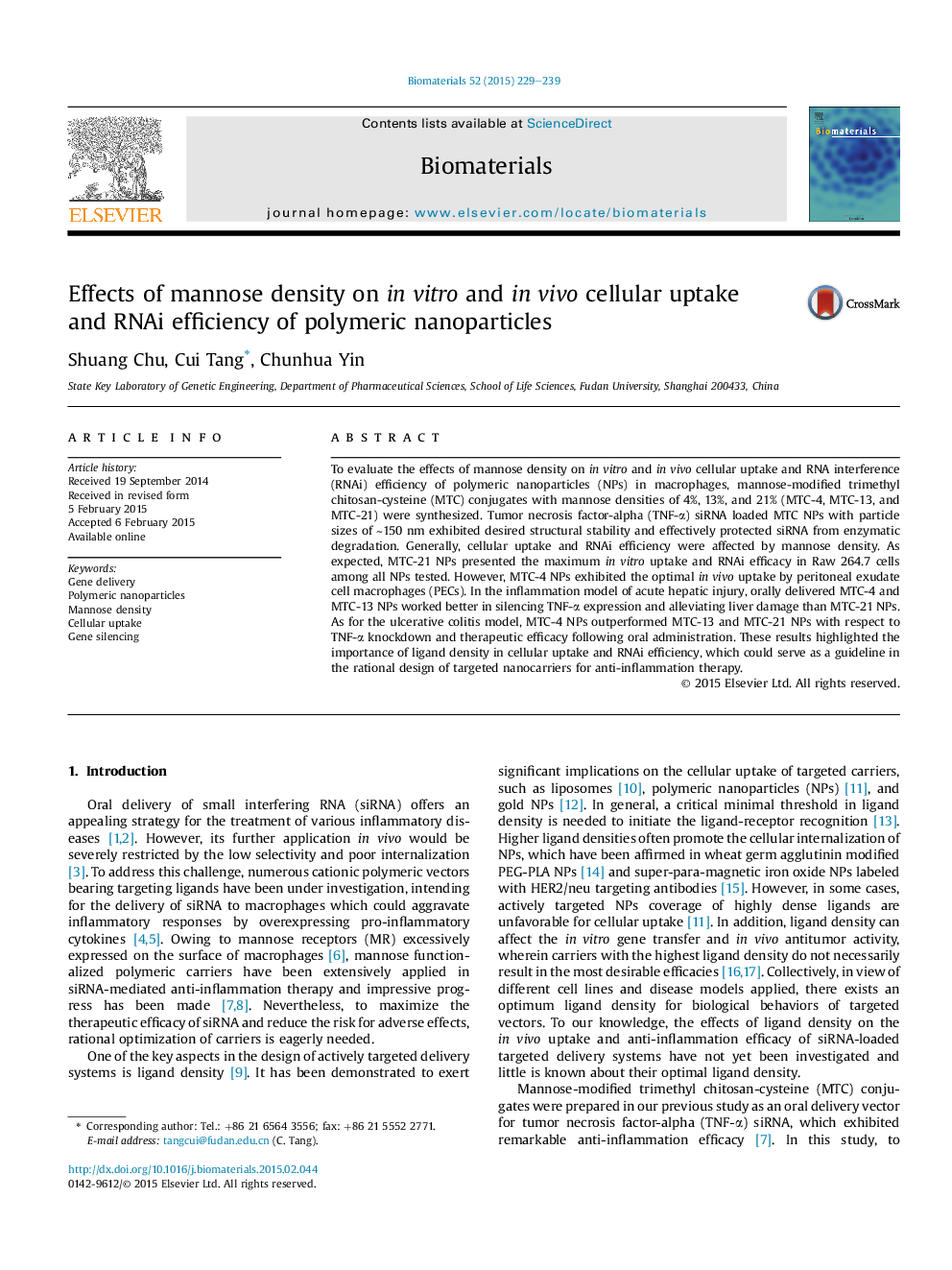| کد مقاله | کد نشریه | سال انتشار | مقاله انگلیسی | نسخه تمام متن |
|---|---|---|---|---|
| 6486099 | 416 | 2015 | 11 صفحه PDF | دانلود رایگان |
عنوان انگلیسی مقاله ISI
Effects of mannose density on in vitro and in vivo cellular uptake and RNAi efficiency of polymeric nanoparticles
دانلود مقاله + سفارش ترجمه
دانلود مقاله ISI انگلیسی
رایگان برای ایرانیان
کلمات کلیدی
موضوعات مرتبط
مهندسی و علوم پایه
مهندسی شیمی
بیو مهندسی (مهندسی زیستی)
پیش نمایش صفحه اول مقاله

چکیده انگلیسی
To evaluate the effects of mannose density on in vitro and in vivo cellular uptake and RNA interference (RNAi) efficiency of polymeric nanoparticles (NPs) in macrophages, mannose-modified trimethyl chitosan-cysteine (MTC) conjugates with mannose densities of 4%, 13%, and 21% (MTC-4, MTC-13, and MTC-21) were synthesized. Tumor necrosis factor-alpha (TNF-α) siRNA loaded MTC NPs with particle sizes of â¼150 nm exhibited desired structural stability and effectively protected siRNA from enzymatic degradation. Generally, cellular uptake and RNAi efficiency were affected by mannose density. As expected, MTC-21 NPs presented the maximum in vitro uptake and RNAi efficacy in Raw 264.7 cells among all NPs tested. However, MTC-4 NPs exhibited the optimal in vivo uptake by peritoneal exudate cell macrophages (PECs). In the inflammation model of acute hepatic injury, orally delivered MTC-4 and MTC-13 NPs worked better in silencing TNF-α expression and alleviating liver damage than MTC-21 NPs. As for the ulcerative colitis model, MTC-4 NPs outperformed MTC-13 and MTC-21 NPs with respect to TNF-α knockdown and therapeutic efficacy following oral administration. These results highlighted the importance of ligand density in cellular uptake and RNAi efficiency, which could serve as a guideline in the rational design of targeted nanocarriers for anti-inflammation therapy.
ناشر
Database: Elsevier - ScienceDirect (ساینس دایرکت)
Journal: Biomaterials - Volume 52, June 2015, Pages 229-239
Journal: Biomaterials - Volume 52, June 2015, Pages 229-239
نویسندگان
Shuang Chu, Cui Tang, Chunhua Yin,